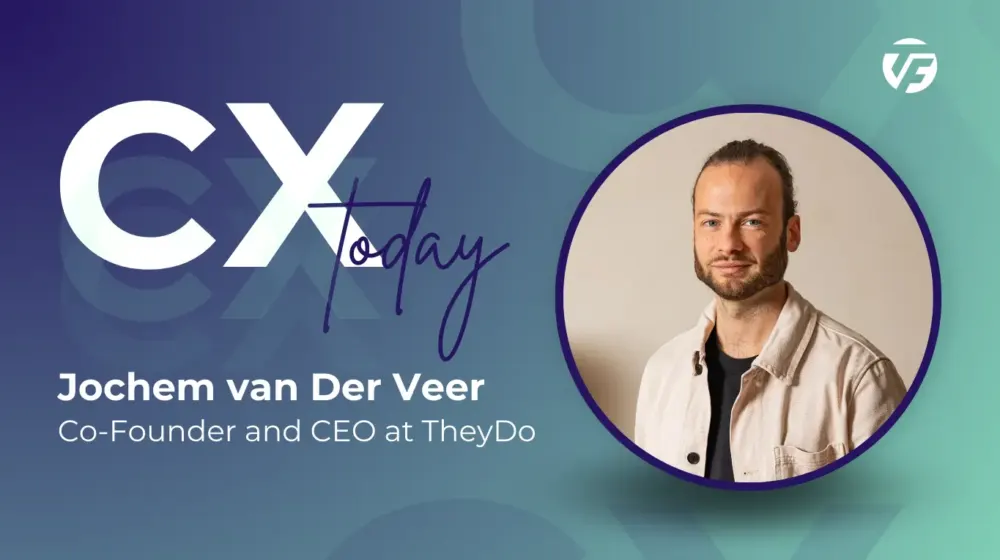
“This morning at Heathrow Airport I saw a cleaning bot stuck on a rubber line on the floor. In what world is it better to have £30K robots than humans?”
When you stop to imagine the future of work, what springs to mind? It’s something we asked 15 thought leaders to answer, and Benjamin Taylor is the latest to rise to the challenge. As you will discover, for him it’s all about the people.

A brief backgrounder. Three things make Benjamin tick: systems, complexity and cybernetics. Not for themselves, but how insights into each of those areas can improve the experience of organisation for the public and for people inside them.
He has worked in what can broadly be called “service transformation” for over 25 years. As an organisational consultant, he focuses on operational effectiveness – and that includes the leadership of companies too.
Day to day, Benjamin is Managing Partner of RedQuadrant, a network consultancy for service and organisational transformation. It includes the Cabinet Office, numerous British county councils and the Abu Dhabi Tourism & Culture Authority among its clients.
What was your first role in tech and what is your current role today?
My first job was actually in ‘tech’ – using Visual Basic to code a system called Rescue, a database creation programme. I was the office junior before I went to university, but I got to work on untangling code, understanding one of the first systems to allow variable and unlimited length fields, and to create an automatic graphic module which I’m still proud of!
These days I’m an organisational consultant, working on leadership, organisation, and service development.
Who are some people in tech you find inspiring, and why?
I’m a big fan of David Chapman, who writes at www.meaningness.com – he was an early pioneer in AI, working alongside Phil Agre, and has gone from that to deep and, I think, useful and mostly correct thinking about thinking.
What jobs do you think AI might replace?
I think these might be surprising! Some of the more creative industries will definitely be affected – visuals and words. I’m not aware of anyone who predicted that!
But for the time being, apart from bespoke pattern recognition and the continued march of automation and digitisation, I think that creative use will be hand-in-hand with (fewer) people.
It’s not so much what AI might replace which is interesting, but how the possibilities of AI will shape business, just as online advertising (for example) has. We will see completely autonomous organisations that work purely in the spaces where they can work, and also marketing and the like funnelled down the paths that can be automated.
What are the major factors influencing the future of work?
I think we’ll see an increasingly sharp divided between:
- corporate suits – people whose identity and way of life is increasingly tied up with the big businesses they work in, which will be more traditional approaches to employment contracts and work
- passion and purpose – people whose identity is about the outcome they are seeking – including those engaged in bringing autonomous entities into being, the outcomes of which they can’t imagine – and also those engaged in environmentalism and other purpose-driven work
- inter-independent indies – people who work gigs (but well paid) and work in different teams, organisations, networks and so on from time to time.
- below-the-API gig workers – those who form part of the machine and will mostly be precarious and underpaid
- traditional jobs – from farming to manufacturing, there are some jobs that won’t disappear
What I’m not looking at here is the insidious influence of money, and how that will shape these worlds.
Is there any science fiction or writer that, in your view, successfully predicts the future?
I’d like to say Asimov and his beautiful vision of the singularity in ‘Let There Be Light’, but I have to say Gibson.
How do you think the work office will change in the next ten years?
Very little, because the only people maintaining them will be demonstrating their innate conservatism.
I hope we will find a better way to offer co-working spaces than the current tired model. I see live/work spaces and blurring of the boundaries of planning zones as a major development area.
Which areas of society do you think will be more impacted by technology?
The poor – always the poor. This morning at Heathrow Airport I saw a cleaning bot stuck on a rubber line on the floor. In what world is it better to have £30K robots than humans?
But with the increasing centralisation of capital, remember John Donne’s words — “No man is an island.” As he famously noted: “Do not send to ask for whom the bell tolls; it tolls for thee.” In other words, do not wonder who will be most affected by this shift — ultimately, it will reach and impact all of us, including you.
More “Future of Work” interviews… and get involved!
Our thanks to Benjamin for taking the time to share his thoughts on the future of work. For more predictions, read on:
- Carmen Vicelich, serial entrepreneur. “Emerging markets will leapfrog some more mature markets through rapid digitisation”
- Philip Ross, author, futurist and CEO of Ungroup and Cordless Group: “The office of 2033 will become a more social, healthier, more sentient, elastic, digital, personalised, shared and purposeful space”
- Duena Blomstrom, author and CEO of PeopleNotTech. “Jobs of the future? Chief Psychological Safety Officers will be in, bureaucrats will be out.”
- Fazilat Damani, Chief Experience Officer at Design for Good. “AI won’t completely replace jobs, but rather evolve them.”
- Jimmy Lee, technologist and CEO of Nirovision. “The work each individual carries out will evolve to use AI copilots, but I’m hopeful that this makes the work even more productive, creative and gratifying!”
- Tony Hallett, MD of Collective Content. “The part of society most impacted by technology will be the world’s middle classes.”
If you have something to say about the future of work, please email us at [email protected].
Read next: How the world of work will look in 2030 by futurist Nicole Kobie
NEXT UP

Jochem van der Veer, Co-Founder and CEO of TheyDo: “In this world of AI, we need to remember to think humanely”
We interview Jochem van der Veer, Co-Founder and CEO of TheyDo, who shares many excellent insights into how businesses can make their customers happy

We don’t know what AI will do next, admits Adobe CTO
Adobe announces a fresh sweep of AI updates to Photoshop and other apps

Dr Babatunde Obrimah, COO of Fintech Association of Nigeria: “Traditional finance and banking companies can learn valuable lessons from disruptors in the fintech space”
We interview Dr Babatunde Obrimah, COO of Fintech Association of Nigeria, an NFP association supporting the growth of fintechs in Nigeria